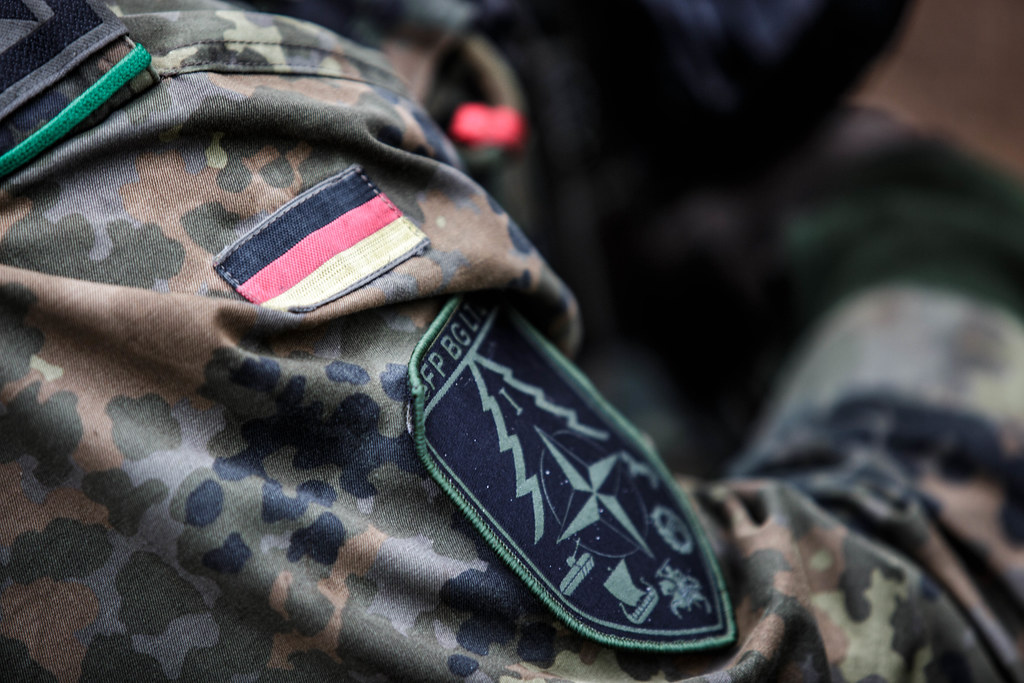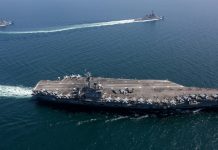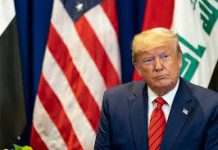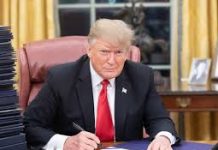
The German government has pledged to cease the training of Chinese fighter pilots by former German Luftwaffe aircrew in a prompt manner. This development highlights the involvement of former personnel from various NATO nations who have been assisting China in its endeavors to expand its airpower capabilities. The decision follows the disclosure in the German media regarding the recruitment of a specific ex-Luftwaffe officer, who previously served as a Eurofighter EF2000 pilot, to share his expertise with China.
Der Spiegel, a German weekly news magazine that first broke the story, reported that during a recent meeting at the Shangri-La Dialogue in Singapore, Germany’s Minister of Defense, Boris Pistorius, expressed the immediate termination of Chinese fighter pilot training by former German personnel to his Chinese counterpart Li Shangfu. The Shangri-La Dialogue is a prominent defense summit held in Asia.
Moreover, Pistorius reportedly conveyed to Li Shangfu his disapproval, stating that Germany would not appreciate if similar actions were taken by China to gain insight into German military expertise. Describing the meeting as candid, Pistorius acknowledged the expression of differing views between Berlin and Beijing. However, he observed that Li Shangfu responded cautiously to the German demand.
According to German press reports, Li Shangfu attempted to downplay the significance of the former German personnel, emphasizing that they were recruited through legal channels as far as is known. The recruitment process involved companies in New Zealand and South Africa, with the individuals subsequently assuming positions in China, reportedly earning high salaries.
Unsurprisingly, these revelations have prompted strong criticism from political opponents of Pistorius and his Social Democratic Party (SDP). Marie-Agnes Strack-Zimmermann, chairwoman of Germany’s defense committee from the Free Democratic Party (FDP), expressed her disapproval, calling for an end to what she deemed as German naivety. Strack-Zimmermann emphasized that it is unacceptable for former Luftwaffe soldiers to train fighter jet pilots in China after their service.
Strack-Zimmermann advocated for stricter regulations on the post-service employment of former soldiers, suggesting that they should only provide instruction to NATO allies and other strategic partners. A similar response followed the previous revelation that pilots from the U.K. Royal Air Force had also been involved in training the People’s Liberation Army (PLA) under similar arrangements.
Konstantin von Notz, a Green Party politician and chair of the German government’s Parliamentary Oversight Panel, described the situation as outrageous, scandalous, and problematic if confirmed, posing a significant security risk. The Parliamentary Oversight Panel has initiated its own investigation into the training provided by these former pilots.
Regarding the specifics of German involvement, the number of pilots engaged in the training of PLA personnel is reportedly small, described as only a handful. However, detailed information has been published regarding one individual known as Alexander H., whose callsign was “Limey.” Alexander H. served as an instructor pilot with the German Eurofighter training unit, having previously been an Eurofighter pilot with the Luftwaffe’s Tactical Air Force Wing 73 “Steinhoff” stationed at Rostock-Laage in eastern Germany.
In 2013, Alexander H. departed Germany, presumably upon completing his service, and reportedly relocated to Qiqihar in Heilongjiang province, northeastern China. At that time, the base housed the J-8 Finback fighter jet, but it has since transitioned to the J-16 Flanker multirole fighter-bombers, which belong to the PLA Air Force’s 3rd Air Brigade.
The exact nature of the training and expertise provided by Alexander H. to the PLA remains unclear. However, unnamed German security officials have acknowledged the possibility that military expertise, confidential operational tactics, and simulated attack scenarios, including offensive plans against Taiwan, could have been shared.
The German Ministry of Defense has not disclosed specific details about the activities of these former Luftwaffe personnel in China or whether they are still present. Nonetheless, the ministry has confirmed China’s efforts to recruit former NATO pilots as instructors through external agencies, specifically targeting former German Luftwaffe pilots. The ministry has also expressed concerns that this situation could allow the PLA to gain insights into relevant tactics, techniques, and procedures.
The attractive financial offers from China may have been particularly enticing to former Luftwaffe pilots, who typically retire at the age of 41. Instead of receiving a pension equivalent to half of their final monthly salary, those who accepted positions in China could enjoy highly lucrative opportunities. Reportedly, UK pilots who engaged in similar employment starting from the end of 2019 received salaries of approximately $270,000 per year.
According to Der Spiegel, former Luftwaffe pilots have been working on behalf of the PLA for over a decade. The initial recruitment appears to have been carried out by the Test Flying Academy of South Africa (TFASA), an organization that has provided training to PLA pilots in South Africa. It is worth noting that no laws appear to have been violated, and concurrently, the German government was also offering formal training to PLA officers.
Another former Luftwaffe pilot, identified as Peter S., who was stationed at Laage, reportedly conducted training for the PLA in China through the TFASA.
A third individual, Dirk J., a former German Navy pilot who operated the Tornado strike aircraft before the navy phased out its fast-jet fleet in 2005, has been implicated in supporting the PLA. In 2013, Dirk J. commenced work as a senior aviation consultant in China, as per reports.
The issue of former NATO aircrew providing assistance to the PLA gained significant attention last year when Daniel Edmund Duggan, a former U.S. Marine Corps AV-8B Harrier II jump jet pilot, was arrested in Australia. Allegedly, Duggan had been involved in training Chinese naval aviators for aircraft carrier operations. It was also reported that Duggan had trained Chinese aviators with the TFASA, a program that reportedly included the potentially illegal acquisition of a T-2 Buckeye naval jet trainer capable of carrier deck operations. Duggan denies any wrongdoing and remains detained in Australia, with the possibility of extradition to the United States.
In addition, the UK Ministry of Defense disclosed last year that numerous former British military pilots, including both fast-jet aircrew and helicopter pilots, had been engaged in providing pilot training to the Chinese military. Some were associated with the TFASA, while others were working directly within China. In response, a spokesperson from the UK Ministry of Defense stated that decisive measures were being taken to counter Chinese recruitment efforts targeting serving and former UK Armed Forces pilots for training People’s Liberation Army personnel in the People’s Republic of China.
“All serving and former personnel are already subject to the Official Secrets Act, and we are reviewing the use of confidentiality contracts and non-disclosure agreements across Defense, while the new National Security Bill will create additional tools to tackle contemporary security challenges — including this one,” said the spokesman for the U.K.’s Ministry of Defense.
Other nations have also taken steps to address the issue of former military personnel providing services to the PLA. Reports have emerged regarding Australia’s investigation into claims that some of its former fighter pilots have been approached for employment in China. Similarly, Canada has been examining similar allegations involving its former fighter pilots.
While it appears that no rules were likely violated in some of these cases, there is a growing concern about the sharing of sensitive information with the PLA, particularly during a period of strained relations between Beijing and Western countries. Of particular concern is China’s increasingly assertive stance towards Taiwan, raising fears among U.S. and other officials of a potential Chinese invasion of the island in the near future. This was evident recently when a U.S. Navy destroyer reported that a PLAN Navy warship made an “unsafe” maneuver in the Taiwan Strait by abruptly crossing its path.
Tensions in the South China Sea further contribute to the complex landscape. In recent weeks, there have been incidents such as a close encounter between a PLA J-16 fighter and a U.S. Air Force RC-135 surveillance plane, with the Pentagon attributing blame to the Chinese pilot for an unnecessarily aggressive maneuver, as depicted in a video.
Given China’s increasing identification as the primary challenge to U.S. security, it is not surprising that the involvement of former pilots from Western air forces in assisting the PLA, regardless of legality, has become a significant concern. It remains difficult to assess the extent to which the PLA has benefited from the expertise of these individuals and whether they have shared tactically sensitive information in addition to routine assistance. Nevertheless, Germany’s response to address this potential security loophole is unlikely to be the last such action taken by nations facing similar concerns.




